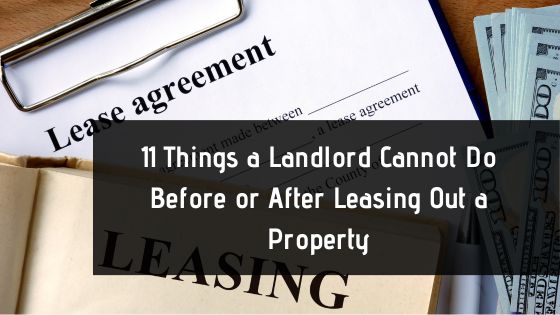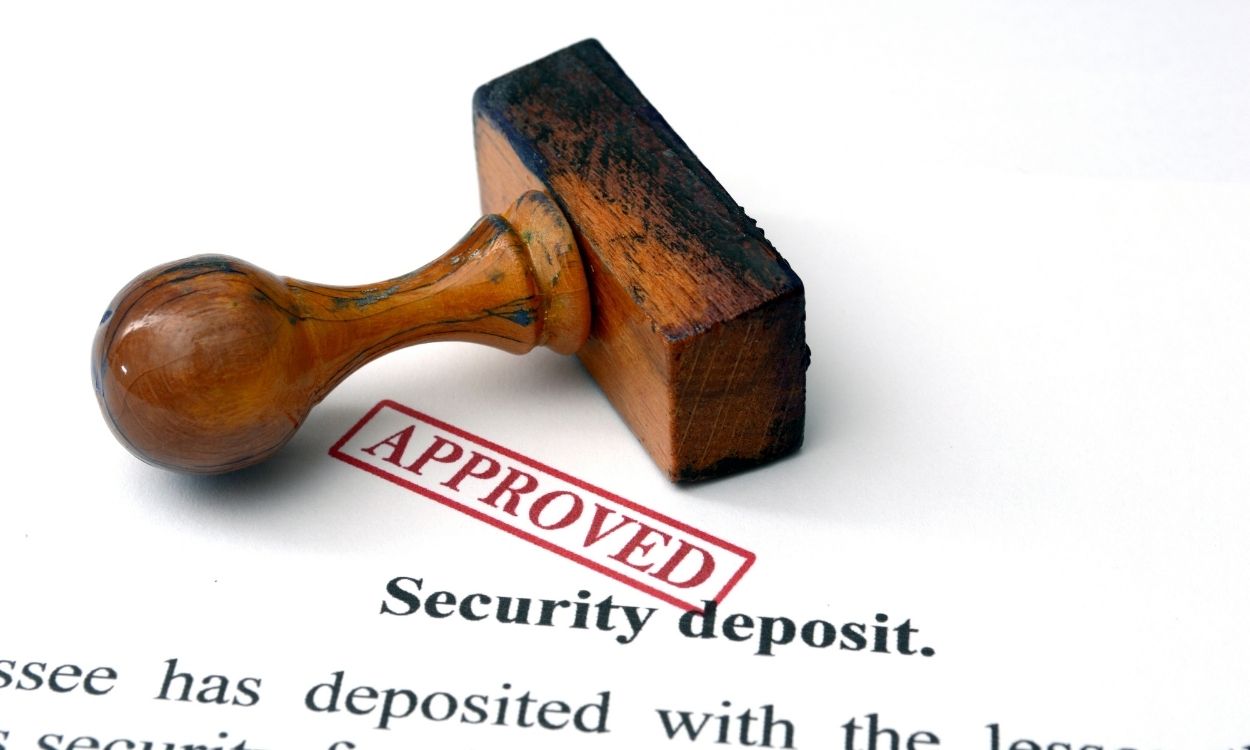
Investing in rental properties can provide generous returns, but there are some things that you need to be careful about. To ensure a smooth and legal landlord-tenant relationship, it's crucial to understand the boundaries and limitations of your role as a landlord.
There are certain actions that landlords cannot take before or after leasing a property. Here are 11 things landlords must avoid to maintain a positive and compliant rental business:
1. Enter the Property Without Notice
Tenant privacy is a fundamental right. Landlords must respect this right by giving proper notice, which typically ranges from 24 to 48 hours in advance, except in cases of emergencies. Failing to provide notice or entering a tenant's home without permission can breach their privacy.
To maintain a respectful and legal approach, establish clear communication with your tenants. Inform them of your intention to enter the property well in advance, detailing the purpose and date of entry.
2. Withhold Essential Services
Landlords are legally obligated to provide essential services such as water, electricity, heating, and sanitation. These services are integral to maintaining a habitable living environment for tenants. Withholding them as a means to force compliance is illegal and unethical. Doing so can result in legal consequences, including fines and the possibility of tenants pursuing legal action.

To avoid such issues, maintain a proactive approach to property management. Ensure that essential services are consistently provided and promptly address any disruptions or maintenance issues that may arise. If there are issues with services, communicate openly and work towards a resolution that minimizes disruption to the tenant's daily life.
3. Discriminate Against Tenants
As a landlord, you cannot base rental decisions on factors such as race, gender, religion, disability, or family status. Fair housing laws exist to protect individuals from this type of housing discrimination. Violating these laws can lead to legal consequences including fines and lawsuits, and damage your reputation in the real estate community.
To ensure compliance, familiarize yourself with local, state, and federal fair housing laws. Implement non-discriminatory practices in your screening and selection process. Provide equal opportunities for all applicants, assess their qualifications objectively, and make rental decisions based on legitimate, non-discriminatory factors such as credit history, rental history, and income.
4. Retaliate Against Tenants
You cannot retaliate against tenants who report issues, request repairs, or assert their tenant rights. Retaliation can take various forms, including eviction, rent increases, or harassment. It’s crucial to create an environment in which tenants feel comfortable reporting concerns without fear of retaliation. Respond promptly and professionally to tenant requests and concerns, and keep relevant documents of all communications and actions taken.

5. Evict Without Legal Process
Evictions must follow a legal process outlined in local landlord-tenant laws. You cannot forcibly remove tenants, change locks, or shut off utilities without obtaining a court order to evict. Attempting to evict tenants without adhering to legal procedures can result in substantial legal consequences.
To handle the process correctly, familiarize yourself with your local eviction laws. Adhering to these processes ensures that you remain in compliance with the law while protecting your interests as a landlord.
6. Violate Lease Terms
Violating the lease terms without proper notice or legal justification can lead to legal repercussions. Common lease violations by landlords include entering the property without notice, failing to provide essential services, or attempting to change lease terms unilaterally.
To avoid lease violations, carefully review and understand the terms of the lease agreement. Ensure that any changes or amendments to the contract are documented and agreed upon by both parties.
7. Neglect Maintenance and Repairs
Landlords have a legal obligation to maintain the property in a habitable condition. Neglecting essential maintenance and repairs can result in uncomfortable living conditions and legal repercussions for landlords. Common maintenance issues include plumbing problems, heating or cooling system malfunctions, and structural issues.
To fulfill your maintenance obligations, conduct regular property inspections to identify and address maintenance needs promptly. Establish a system for tenants to report maintenance issues, and respond promptly to their requests.

8. Change Locks Without Notice
Changing locks without prior notice or tenant consent is typically unlawful. It infringes on a tenant's right to access their rental property. Landlords must follow proper legal procedures when altering locks.
To ensure compliance, communicate with your tenants about any necessary lock changes. Provide adequate notice, typically according to local laws or written lease agreements, before making any modifications to locks or keys.
9. Raise Rent Without Proper Notice
Landlords cannot raise rent without providing proper notice to tenants. The notice period varies by jurisdiction but typically ranges from 30 to 60 days. To avoid complications, research the specific notice requirements in your area and follow them diligently. Communicate with your tenants well in advance of any planned rent increases, providing clear information about the new rent amount and effective date.
10. Fail to Return Security Deposits Timely
Security deposits are held to cover damages and unpaid rent, not as a source of income for landlords. Landlords must return a tenant's security deposit within a specified timeframe.
To meet this obligation, promptly assess the property for damages at the end of the lease, deducting any legitimate expenses. Provide a detailed itemization of deductions and return the remaining security deposit amount within the required timeframe.

11. Ignore Local Laws and Regulations
It’s essential to stay informed and comply with all relevant regulations that pertain to rental property management in your specific area. To ensure compliance, stay up-to-date with local and state laws related to rental properties. Complying with all applicable regulations not only prevents legal issues but also contributes to the smooth operation of your rental business.
Bottom Line
Being a responsible landlord is crucial for a successful and sustainable rental business. Understanding what you cannot do before or after leasing a property is just as important as knowing your rights.
By following the advice provided in this article, you can maintain a positive relationship with your tenants, avoid legal troubles, and create a conducive environment for a thriving rental business.
You may also work with a professional property manager to help you manage your rental business and avoid legal issues. For inquiries, contact Pinnacle Property Management!







